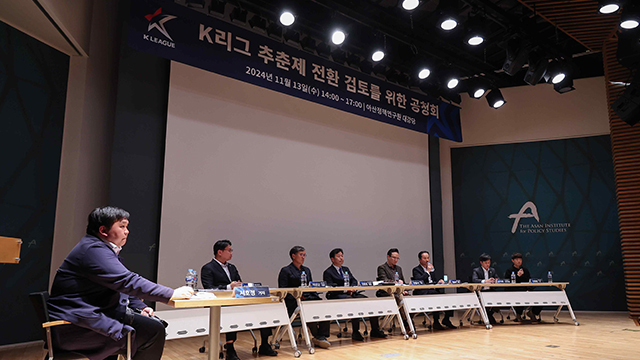Why players want the biggest change since professional soccer's inception: the K League Choochun Festival
Why players want the biggest change since professional soccer's inception: the K League Choochun Festival
Blog Article

After more than 40 years of existence, South Korean professional soccer is about to undergo its biggest change yet. The league is in the midst of discussing the introduction of a “Choochun season” that would begin in the fall and end in the spring, similar to the European big leagues. The idea, which seemed unrealistic just a year ago due to Korea's cold winters, is expected to move forward at a rapid pace, with a majority of professional soccer officials now in favor.
At a public hearing held at the Asan Institute for Policy Studies in Jongno-gu, Seoul, on the 13th, officials from the K League, clubs, soccer field turf management experts, and even active players gathered for a heated discussion. Surprisingly, six out of the seven panelists were in favor of the switch. Only Yoon Ji-hyun, the general secretary of Chungbuk Cheongju, a Sidomin club, was against the idea, citing practical reasons such as the club's accounting.
The player representative was Pohang defender Shin Kwang-hoon, who stood out because he said that after asking his fellow players for their opinions, the majority of them were in favor of the switch. However, the reasons for the switch were interesting. The biggest reason was that it was too hard to play in the heat of July and August.
In other words, Korea's summer climate is too hot and humid for athletes to perform well. “Most of the players are in favor of the idea,” Shin said, adding, 파워볼사이트 ‘It's so hard to train in the heat that even the team's tactical strategy changes.’ He explained why he is in favor of the switch to the Chuseok festival, which allows players to take a break in July and August. However, Shin was concerned about the possibility of playing more games in the winter, saying, “I think there will be a lot of injuries, especially for players who are older or have had surgery.”
Shin's support for the change is telling, as it reminds us of how much of a burden it has been on players to play soccer in the heat as much as the cold. During the 2002 Korea-Japan World Cup, star players from European leagues said that “the sweltering summer weather in Japan and Korea, especially the humidity, made it difficult to play,” reaffirming the question of whether East Asia's midsummer climate is suitable for soccer.
Shin's theory of the heatwave was backed up by real data. As Jeong Tae-seok, a member of the K League Committee, who attended the hearing, said, “Various performance indicators drop during the heat wave. In fact, data figures show that the total distance run and sprinting distance of players drop in the middle of summer compared to other periods,” he said. ‘From personal data, I believe that Chuchunje has advantages in terms of player health management and performance,’ he analyzed.
The problem with professional soccer in the heat isn't just the players' performance, but also the condition of the turf on the field. Mr. Lee Kang-gun, a lawn care expert who attended the hearing, said, “Overall, the Autumn Festival is more beneficial to the grass. Since the biggest damage to the grass occurs after the midsummer rainy season, it would be better for the grass to grow if the stadium not only does not play during this period, but also takes a two-month break in winter.”
In fact, the idea of switching to the K League has never been seriously discussed due to the bitterly cold winters in Korea. However, with the Asian Football Confederation (AFC) changing its Champions League schedule to Chuseon, and the Japanese J-League announcing that it will switch to Chuseon from the 2026 season, the K League can no longer put it off.
Unlike its European counterpart, the K League does not play in the winter, and it has proven to be a practical advantage in avoiding the extreme heat of the season, which has had a negative impact on player performance and turf. The biggest change in Korean professional soccer since its inception is just around the corner.
Cho Yeon-sang, the general secretary of the KFA, said, “There is no policy yet. There may be a variety of opinions from clubs, so we will decide whether to implement the change after gathering enough opinions.”